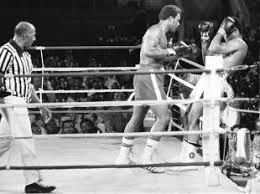Nib #56 No One Cares What You Think
This is of the harshest but most essential lessons young writers must learn to become better, more persuasive and creative writers: No one cares what you think.
Learning this lesson in school is almost impossible. For our first 15 years as writers, our audiences — our teachers — are literally paid to closely read everything we write. So we grow up intuiting that our authorship as such makes something worth reading.
This is not the case after graduation. No one outside your closest circle of friends and family will ever read your stuff just ‘cuz. They will only read what is worth their time to read. People read for themselves, not for authors’ sakes. (Don’t believe me? Think for a moment how you ruthlessly delete 98% of your emails mere seconds after receiving them.)
Good writers, then, strive to make their compositions good to read: informative, interesting, entertaining, and always clear. Once a writer overcomes this psychological hurdle — no one cares what I think — the actual work of writing comes into much sharper focus.
You’ll start to see your writing through the eyes of your audience. All of a sudden, evidence is not there simply to support your argument, but to convince your reader. Word choice and phrasing and cadence don’t just express your inner thoughts; they capture your audience. Paragraphing becomes less about textual organization and more about reader momentum.
Things like the passive voice, overwriting, and overlong sentences become easier to spot and correct. You become better at identifying and avoiding digressions. You stop showing off. You quit trying to write and start trying to connect and inform and frame and persuade — which is what we really mean by good writing in the first place.
Authorial humility is a paradoxical superpower. The sooner you accept your readers’ indifference to your opinions, the better you’ll be at convincing them your opinions are right.
Until next week… keep writing!


All Rights Reserved 2024 Inkling Communications | Privacy Policy
Website Designed By Royals Advertising









